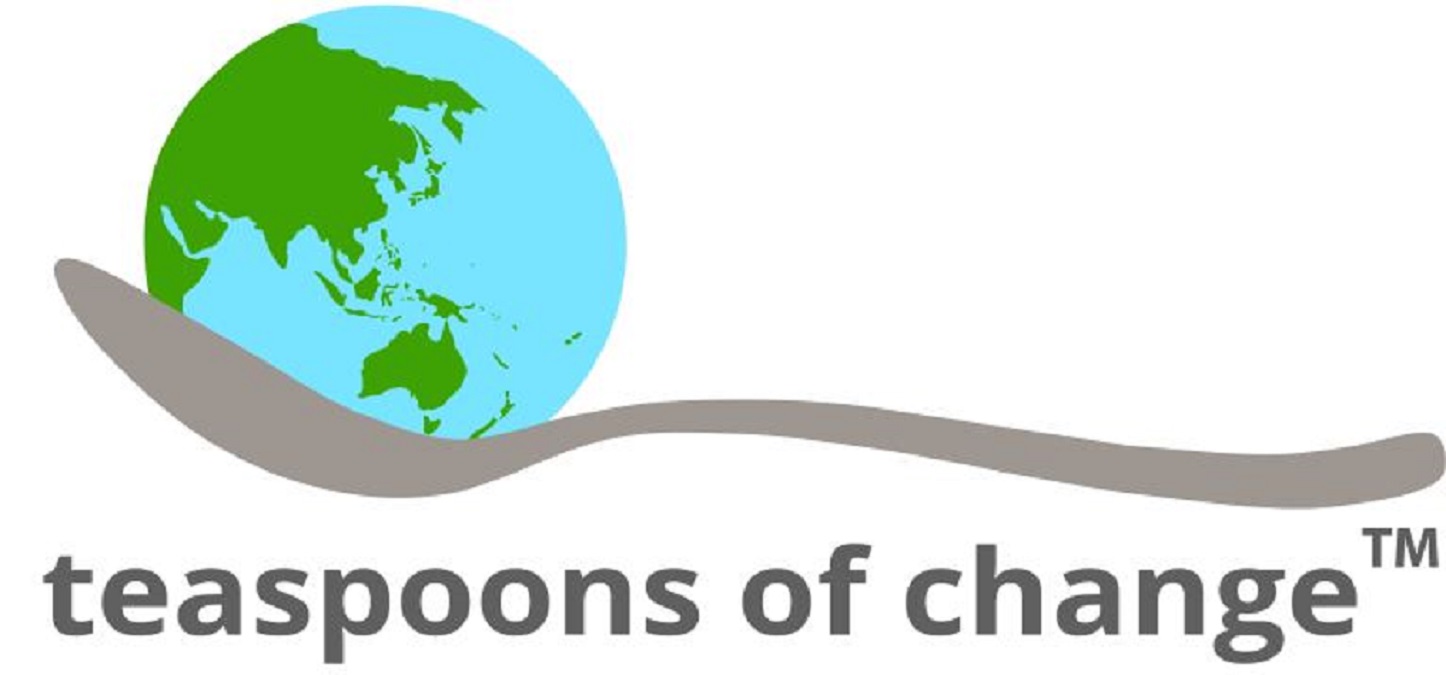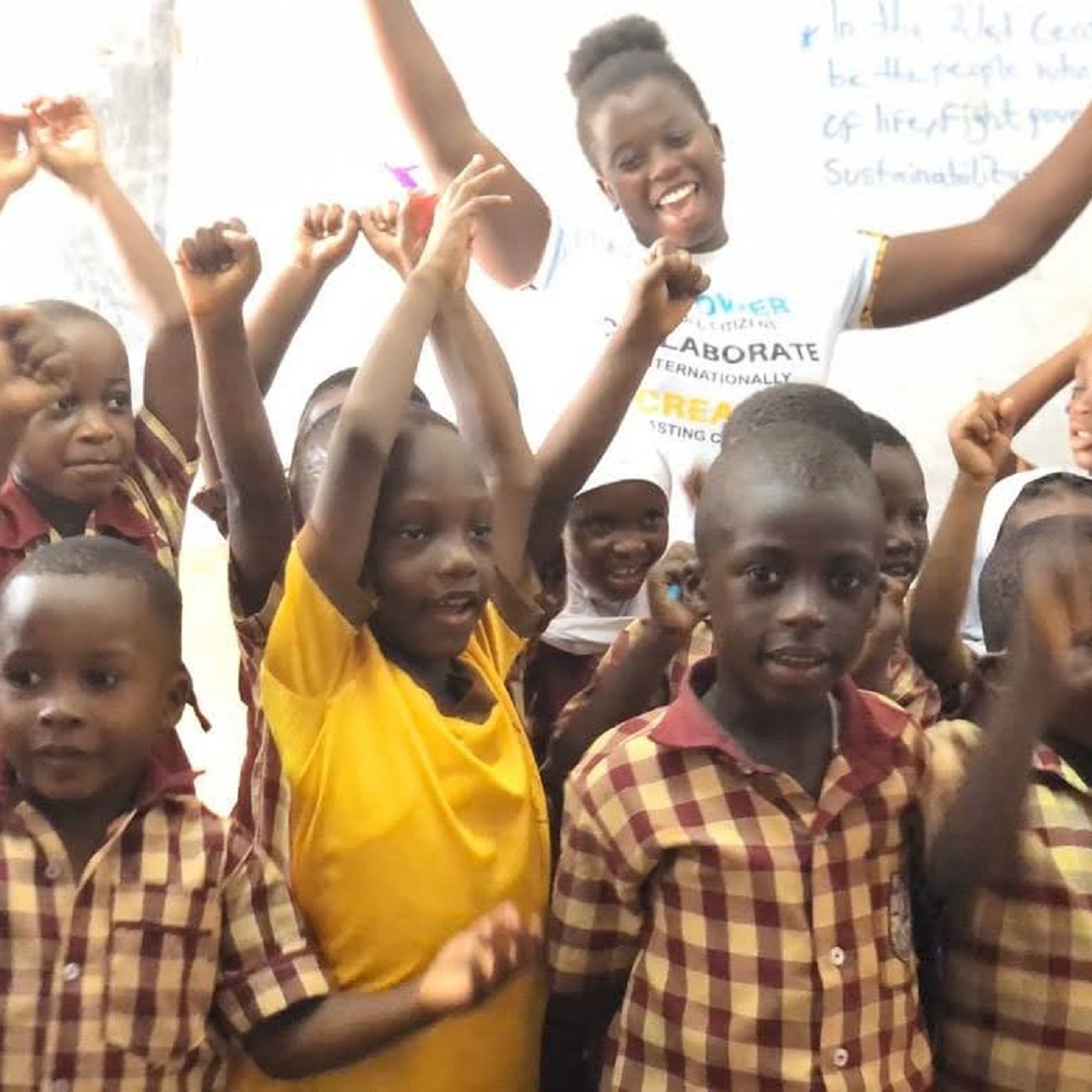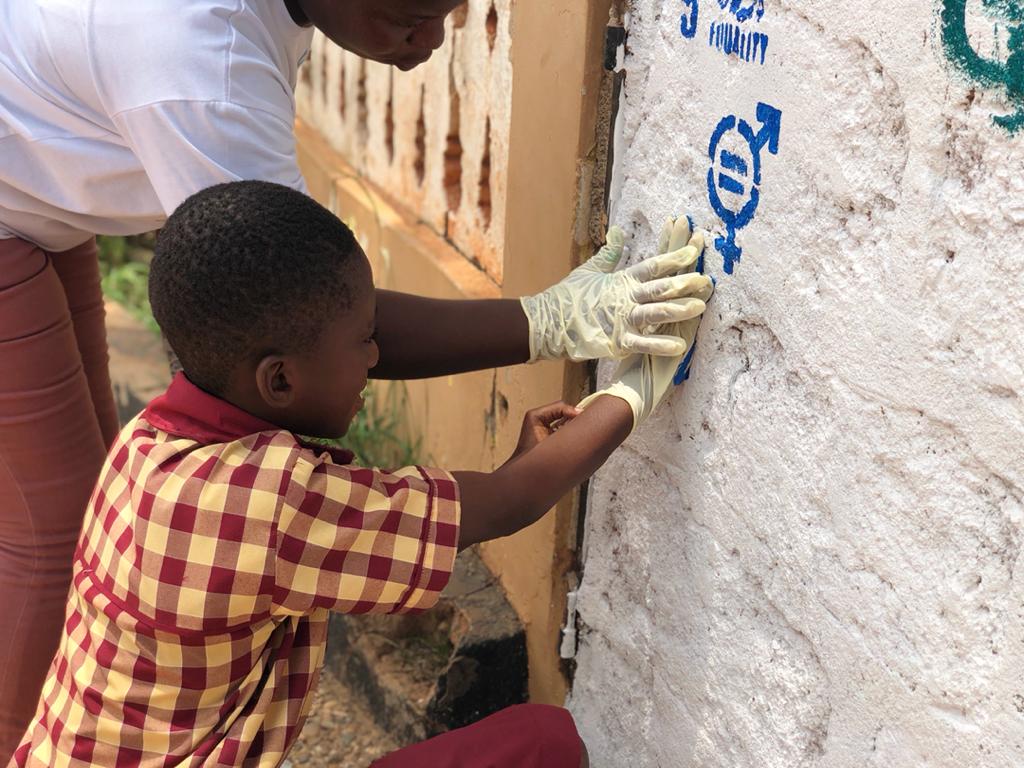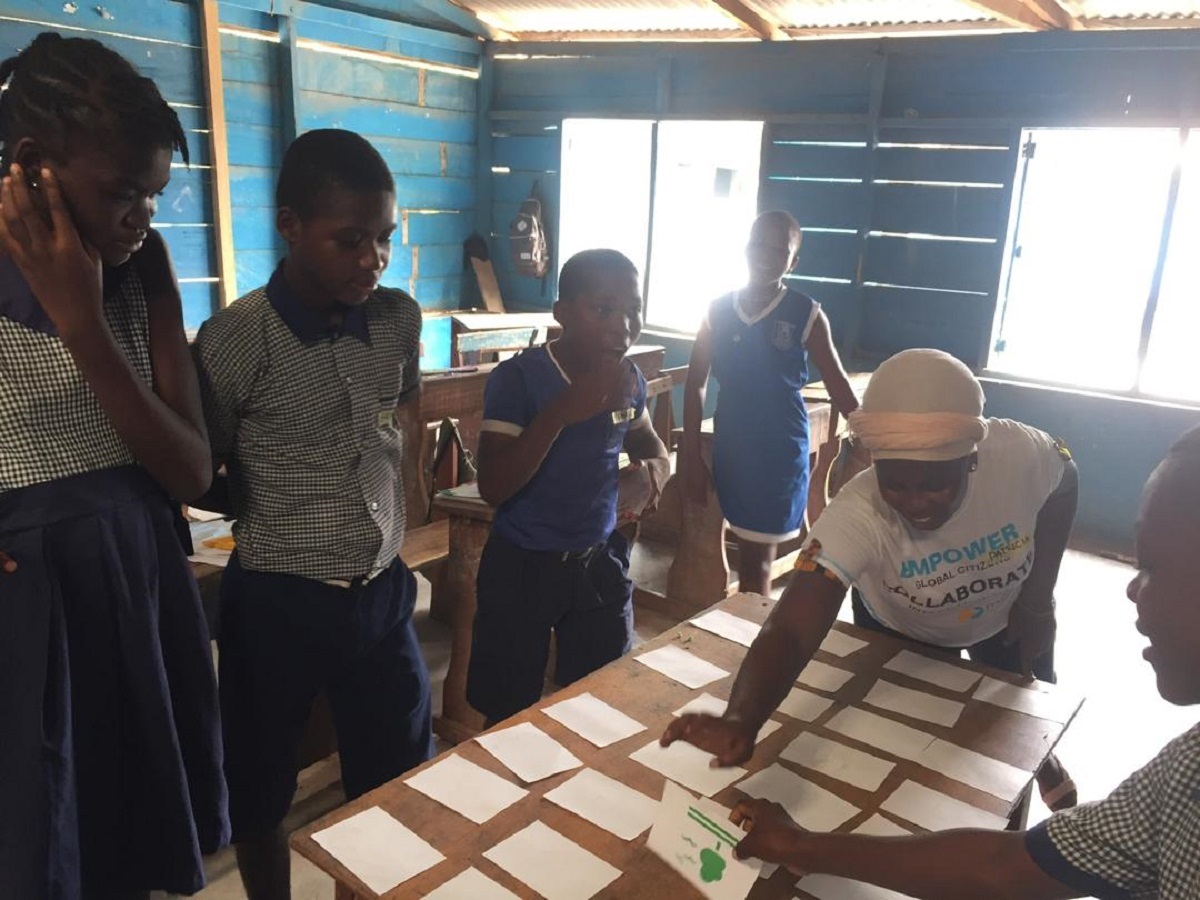Question: Tell me about teaspoons of change
For me you brought a basic concept, Teaspoons of Change is not a program or organisation or whatever, it is a concept. The essential thing is, how do we connect our actions with impact. Teaspoons of change is about turning off light switches, using less plastics, checking up with your friends, being a good person and really it’s about knowing that your actions have impacts and connecting to them.
So when you turn off a light switch, you are not turning off a light switch because you are saving the world, you are turning off a light switch because, you are connecting your behaviours, attitudes, habits and these sort of things into ‘I am turning this off because I know it’s about saving electricity which uses fossil fuels, not exactly in that kind of ways’. In the [most] simplest kind of way is that, I take action or I make good choices or good decisions and take good actions that have good impact and believe that that fits into a collective context using the global goals, and so if I do that and other people do that then big change is possible.
“So [the] really important thing is that small actions multiplied by lots of people equals big change”
Question: How does what you do fit into being a global citizen concept
So I don’t put the burden of the world on individual shoulders. The thing for me is not to overwhelm people. So Teaspoons of Change is a very friendly, easy way to connect to knowing that we are one person of 7 and a half billion people in the world, and without a moral bashing or guilt trip or without asking people to save the world. I always call teaspoons of change as kind of like a welcome mat to global citizenship. If you can work out which of your actions have positive impact, then hopefully you will celebrate them and do more of them, more often.
So the first question I ask everyone is, are you a global citizen? and in order to answer that question you have to have your own personal definition of what that means. I am very not prescriptive of what a global citizen is, and you should do this and this and this and it’s more like what does it look like to you. So it can be more of I help carry the water for my family to go and wash the clothes by the river. All that adding the context of those things, being a good person and how that fits into a family, and a community, and a country, and as a globe. So global citizenship is really essential but I never start with, okay he is a global citizen, you should go and do that.
The last thing I want is for everyone to go and work for UNICEF or the UN. I want people to do what they want to do, to be hairdressers, or farmers, footballers, musicians, lawyers or whatever it is. All of us can go and do it as long as we look at the world with 360 degrees and that for me is much more important than I need to be a good person and be like I want to do this job and go and do it and hate it. But follow your passions and your interest in the things you care about, but do knowing we live on one planet, one finite planet and that we are one of 7 plus billion people in the world.
Question: So what brought about the idea of teaspoons of change
It comes from polio eradication, so when you are talking about drops in the ocean, that’s where it came for me, I was working in the UN, Gates foundation, WHO and other organisations. When it comes to polio eradication, I am not a doctor but works with communication and one of my colleagues is from Ghana. I was working in Uganda, South Sudan, Pakistan, India and some other places.
With polio, the vaccine, prevention is two drops, and what I learnt was in 1988 there were 350000 cases of polio in the world, in 125 countries. 30 years later in 2008 there were 33 cases in just two countries for the whole world for the whole year. The way we did that was two drops, two drops, two drops, two drops, billions of times over to eradicate the second killer disease after small pox. So that was from 2012-2014 around that time and I have been working in global citizen and climate change and blah blah blah and was always trying to fight with big change and I’m like yeah, we need this big change.
So after seeing polio eradication, I just felt it comes down to individual choices decisions and actions. And if we all make good choices, decision and actions collectively we can do amazing things. “It’s not that people don’t care, it’s that they don’t believe their actions matter. That’s the little area I wanted to fill, is for people to feel like their actions do matter”. One of the hardest things is that change is invisible, so the plastic water bottle that I don’t use, I can’t see, the plastic straw that I don’t use, is invisible you can’t see it. So creating change is really [really] difficult because at that moment and at that time we can’t see the impact that it is creating. I have lived in Africa and central Asia and other parts of the world, I haven’t bought one plastic bottle for more than eight years. I can’t see the number of plastic bottles I didn’t use but I know that I am responsible for zero plastic water bottles at least for me as one individual. That’s why I created a concept of Teaspoons of Change to try and put a name to the small actions we make that feel tiny and insignificant to try and make them like, yeah I did do this and did do that so that I know that though it is small it does fit into that bigger change.
Question: How do you think MTW can incorporate the teaspoons of change concept.
I am a teacher by trade and have been an educator for over 20 years and I love working with young people, and so, I think what I found in my personal sort of experience is never telling people what to do, so what I try to do is make it fun and engaging, and the people that I am trying to reach aren’t the ones who already care, they already care and are motivated and it is wonderful to work with them, my target audience are the people who don’t know and don’t care. Therefore, I try to use Teaspoons of Change as a contextualization tool, when you do this, it has a positive impact. When you use less hot water, when you have a shorter shower, when you check in with your friends to make sure that they are doing okay, maybe you are helping the older people in your community.
So it is adding context to these small things. I have been to Liberia, I haven’t been to Ghana but, in West Africa and lots of places I go, there are already so many people doing good things that we don’t have to look at Malala, Gretha and these other people in these other places. In every community in the world, especially in many communities I have lived in Africa, there are so many good people. The person who is very community minded, they are the true global citizens, so they don’t travel around the world or speak five languages, maybe they do, maybe they don’t; but that they care about other people and themselves and the environment. The other thing for me, I do a lot of work in China as well, it’s like, look at your grandparents and the way they live and it’s a very self-sufficient and sustainable model, and if we start to learn from those practices, half the time we can teach the older generations why these things are important. So I look for opportunities to really celebrate the things that people are doing and starting at that point and once we start at that point, then we can think of fun and interesting ways to keep them engaged.
My second question is, what does it mean to be an active and effective global citizen, and that is infinite, so not using plastics is a great place to start but is a terrible place to stop. So the picture becomes more active and effective by making sure we are doing some of the small things when we can and as often as we can and enjoying it along the way, that for me is about facilitating that process.
What I like about MTW is that it is engaging, it is fun, it is a growth mindset and these sort of things. Basically I try and trick people into doing good things without them knowing it.
Question: Which of the SDGs resonates with you so much
My favourite is global goal number 12 (responsible production and consumption) because I think if we shift our idea of being, you know quantity of life, if we shift it to quality of life and we have less stuff I think we are going to be happier and healthier for the planet, so for me that is really important. For me I have a self-sufficient tiny house off the grid, I have got solar panels, rain water like many of the houses in Africa and in place I have lived. So this is one of my happiest, I don’t want a big house I don’t want lots of stuff, I am happiest when I can have chat, have some Wi-Fi, connect with people, go for a walk stuff like that.
My least favourite is decent work and economic growth. I am not a fan of economic growth, I think it creates inequalities and I think it creates lots of planetary problems in the wrong way. There are examples of restorative, regenerative economies which are okay but instead of me throwing stones at it, we need to redefine what does that look like.
One other key thing is to find good people doing good things and so every young person can find someone who is good who is doing good things that they aspire towards, learn from them, ask them questions and keep trying to[be] persuasive like yeah today I am going to wake up and see if I can make the world a better place, at least in the tiny little way.
Interviewed by Celestine Chime
Connect with Teaspoons of Change
Facebook: https://www.facebook.com/teaspoonsofchange
Instagram: https://www.instagram.com/teaspoonsofchange/
Twitter: https://twitter.com/Tspoonsofchange
LinkedIn: https://www.linkedin.com/company/teaspoons-of-change/




